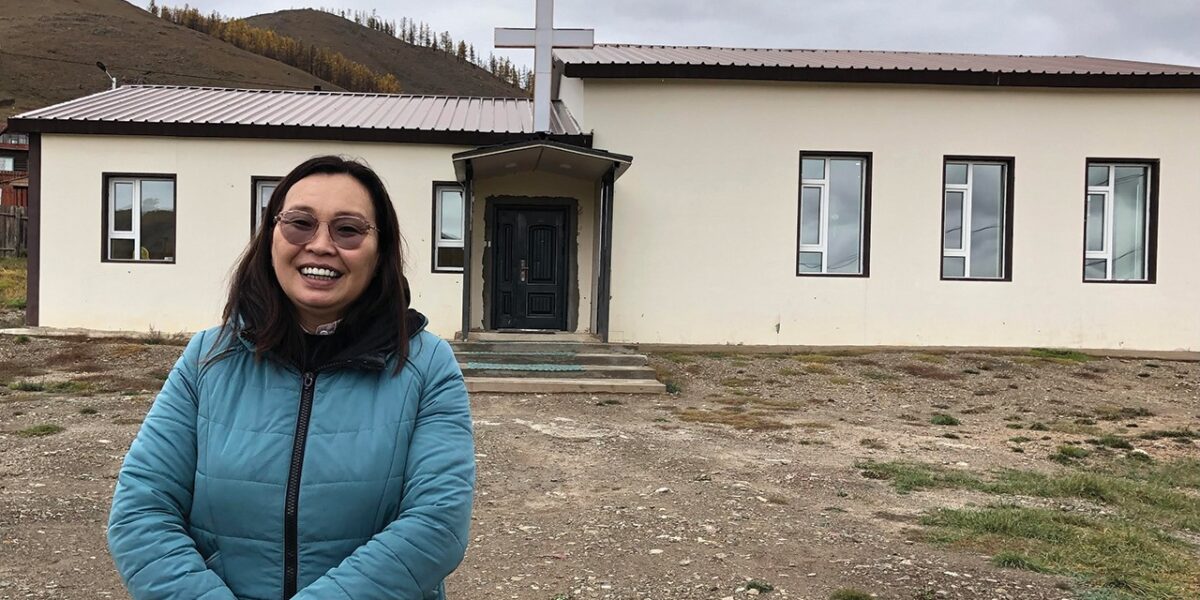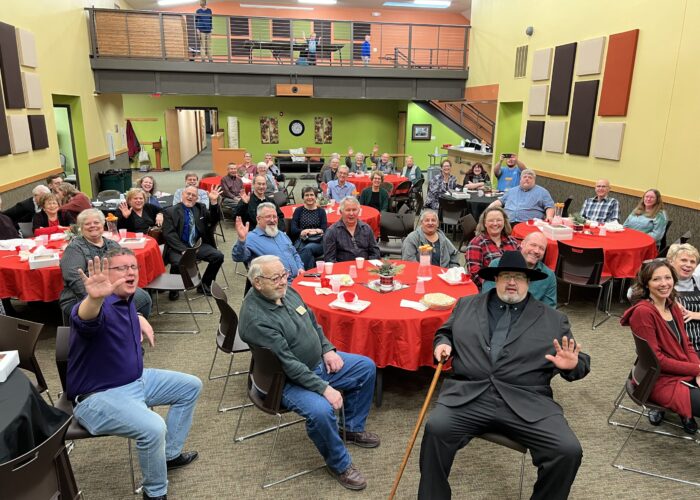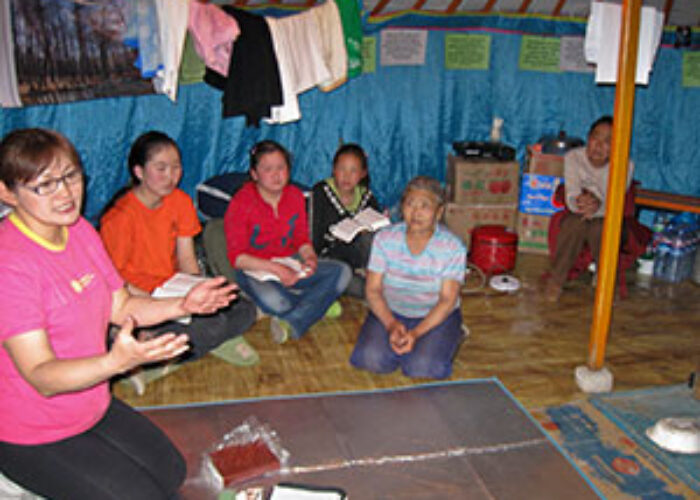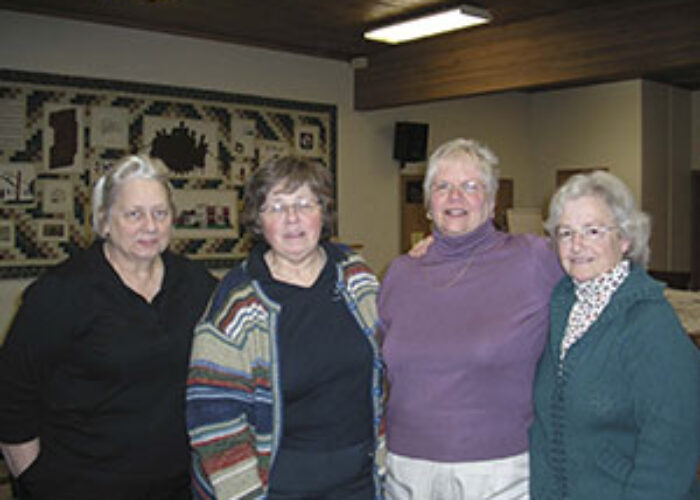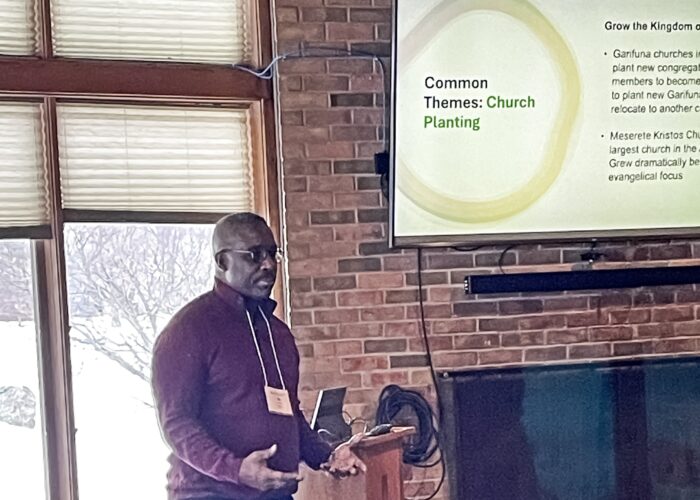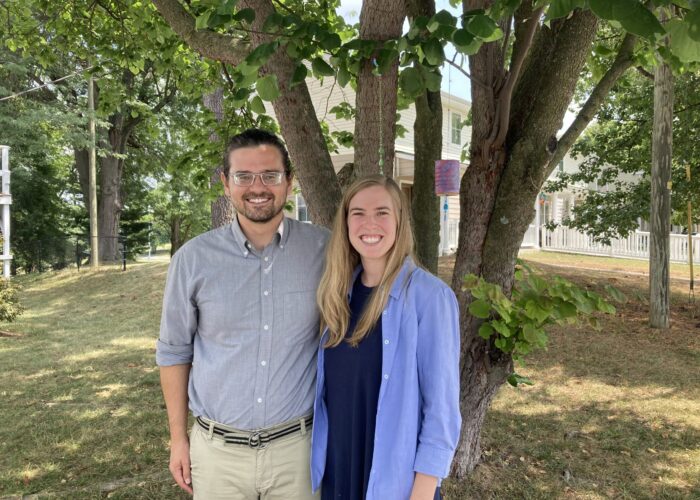Sister Care brings ministry of healing to women who spread the gospel in former Soviet client state
This article first appeared November 8, 2024, in Anabaptist World.
It was a profoundly moving experience to share Sister Care, a ministry of Mennonite Women USA, with 50 first-generation Christian women leaders Sept. 27-29 at a retreat center outside Ulaanbaatar, the capital of Mongolia, a nation where Christianity barely existed 35 years ago.
Speaking openly about Jesus became possible in Mongolia in 1990 with the collapse of the Soviet Union. In 1993, Mennonite Board of Missions, a predecessor of Mennonite Mission Network, in cooperation with other mission agencies, formed Joint Christian Services in Mongolia.
From five known Christians in 1990, the number increased to about 1,000 by 1993 when Mission Network worker Laura Schlabach joined JCS (now JCS International). Today there are an estimated 70,000 Christians in Mongolia, about 2% of the population.
The women at Sister Care shared their stories of becoming Christians and spoke of the joy of knowing that when they died, they would be with Jesus. As Buddhists, they had worried about what they might become in future reincarnations.
One participant, Oyuna (Mongolians usually use only first names), told us about her husband, who had been the president of the Mongolian Evangelical Alliance. In 2005, a group of Mongolian Christians who had been praying that North Koreans would come to know Jesus traveled to North Korea and shared the gospel. After returning, Oyuna’s husband, who led the group, became ill and died. They believe he was poisoned in North Korea. Whenever she mentioned her husband, Oyuna said, “He is with Jesus.”
Another woman, Oogii, the head of the Christian Women’s Ministry in Mongolia, grew up in a Buddhist family but was an atheist. At the age of 16 someone told her the story of Jesus feeding 5,000 people with five loaves and two fish, and she found this compelling. She was surprised that people who knew Jesus were delivered from addictions and other problems and had found meaning in life that she didn’t have.
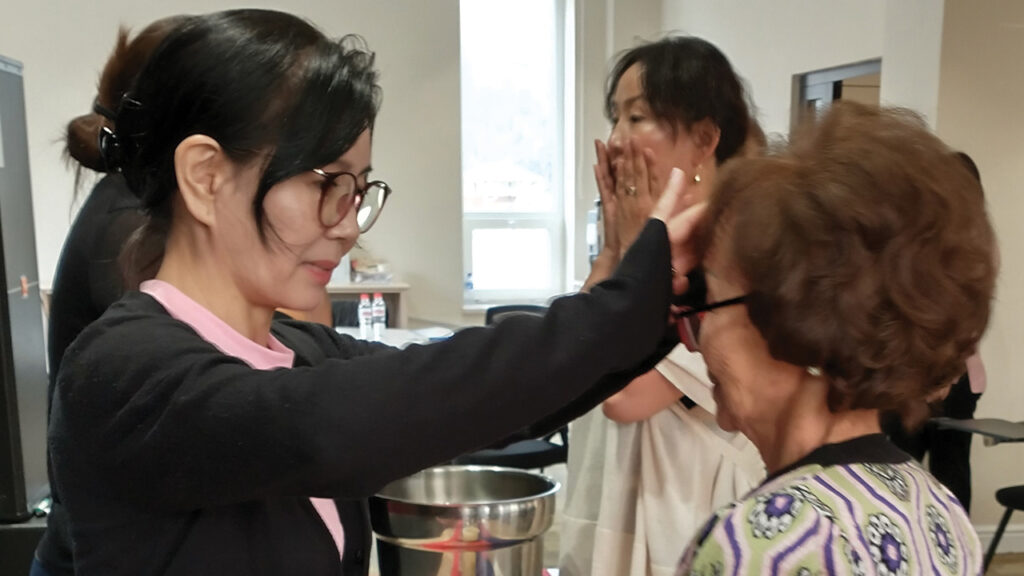
She said, “My friend has Jesus, but I am alone. I want Jesus to come into my life. When he did, I found meaning and purpose. Before I had wanted to be the best in math and physics, but now I just wanted to share Jesus.”
Oogii and four Christian friends went back to her village and began teaching children about Jesus.
“At first some villagers burned our Bibles,” she said, “but later we brought medical doctors and treatment, and then the village appreciated us.”
Oogii’s father was ridiculed by others who said, “Your youngest daughter is a Jesus teacher!” Later, all of her family became Christians. Today Oogii is the pastor of the only Christian church in the Terelj region.
The church sponsors a summer camp for over 200 children and 60 to 100 adults using the traditional gers (yurts) next to the church for extra classrooms and activities.
We were touched by the effectiveness of Christians sharing the gospel and the resulting growth of the church. As we listened to the women, we heard their hunger for resources to heal the wounds they and many others carry.
A physician told of a patient she is working with who had been sexually assaulted. She said, “Before I heard the Sister Care teaching, all I knew to help her was to pray. Now I have other practical tools for healing emotional wounds.”
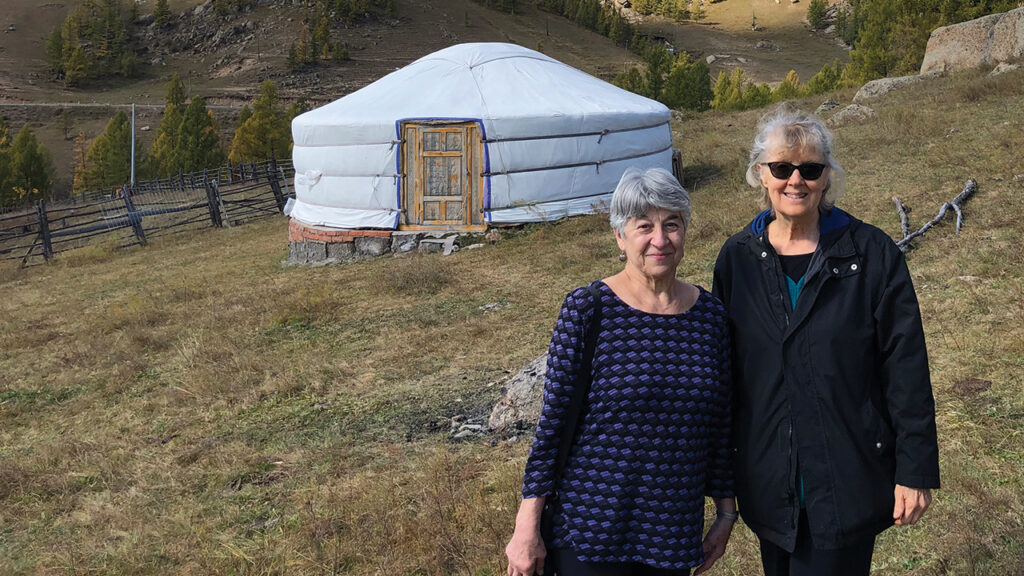
Hosts for Mongolian Sister Care were Laura Schlabach, a Mission Network worker from Ohio who has served in Mongolia for 30 years, and Munkhtuul, vice chair of women’s ministry of the Mongolian Evangelical Alliance. Munkhtuul organized two additional workshops in Ulaanbaatar. One was for women in church leadership and the other for women working in family and children ministries. We sensed a hunger for additional resources to provide healing and growth.
The Sister Care International ministry has been shared in 21 countries on five continents, and the manual has been translated into 22 languages. The Mongolian seminar and workshops were funded by United Service Foundation, Mission Network, and individual donors.

